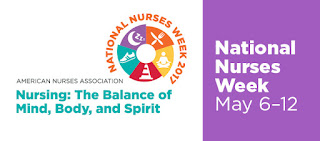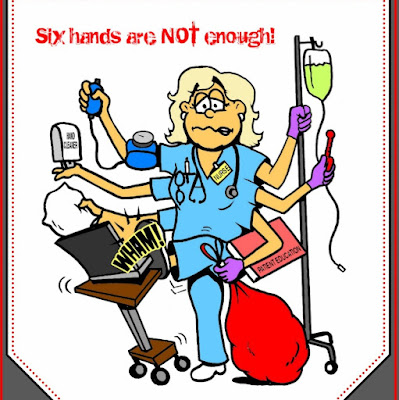Breaking the Stereotype: The Benefits of Increasing Male Nurses and Midwives in Nigeria
 |
| More male nurses will definitely eliminate the myth that only women are meant to be nurses/midwives |
Despite nursing and midwifery being two of the most important professions in the healthcare sector, the number of males in these fields remains alarmingly low in Nigeria. In fact, the midwifery profession has the lowest representation of males among all specialties in the country. This article aims to break the stereotypes that nursing and midwifery are female-oriented and examine the benefits of increasing male participation in these fields.
Studies show that gender diversity in healthcare
professions is essential for providing better patient care. A report by the
World Health Organization (WHO) suggests that male nurses bring a unique
perspective to the profession and can play a significant role in promoting
gender equality in healthcare. Furthermore, increasing the number of male
nurses and midwives can help to eliminate the common misconception that these
professions are meant only for women.
Despite the advantages of having more male nurses and
midwives, the Nursing and Midwifery Council of Nigeria (NMNC) reported that
many male applicants are denied admission to nursing and midwifery programs in
the country. In response, the NMNC issued a circular on January 29th, 2021,
encouraging schools and colleges of nursing to increase the admission numbers of
male applicants and address gender-based discrimination in admissions.
Moreover, having more male nurses and midwives can
help to boost the image of these professions and attract more qualified
individuals to the field. A report by the International Council of Nurses (ICN)
showed that increasing the representation of males in the nursing profession
can positively impact the public's perception of nursing and promote gender
equality in the workplace.
In conclusion, increasing the number of male nurses and
midwives in Nigeria is essential for breaking stereotypes, promoting gender
diversity in healthcare, and providing better patient care. The Nursing and
Midwifery Council of Nigeria's recent circular highlights the importance of
addressing gender-based discrimination in admissions and promoting gender
balance in these professions. By embracing diversity in the nursing and
midwifery fields, we can help to create a more inclusive and equitable
healthcare system for all.





No comments:
Comments for this blog are held for moderation before they are published to the blog.
Note: Only a member of this blog may post a comment.